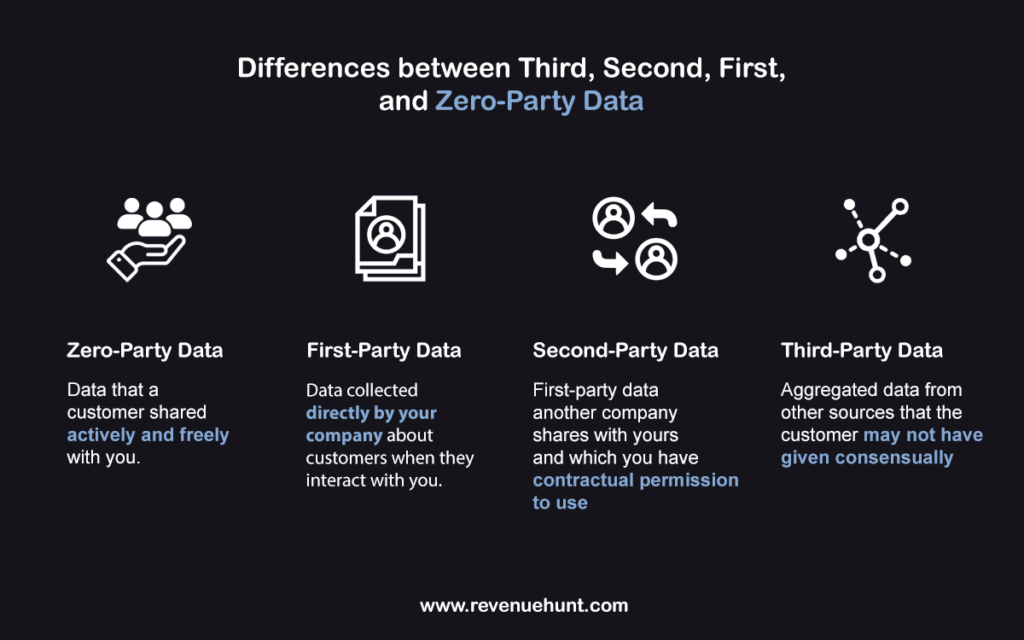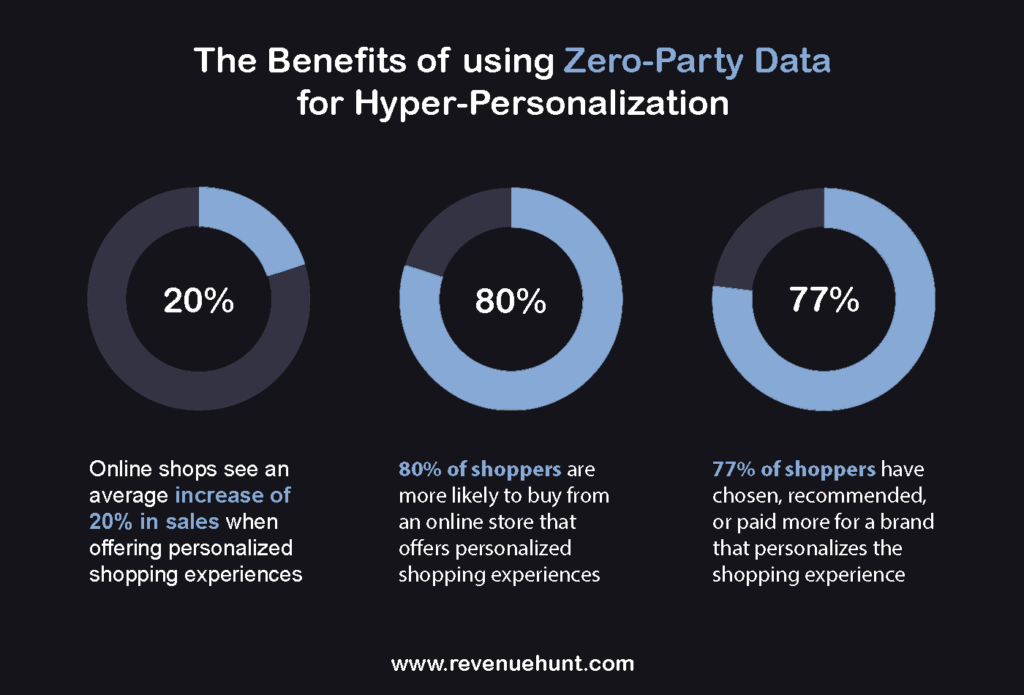What is Zero-Party Data and Why it Matters for your eCommerce Business
7-7-2022 eCommerceWhat is zero-party data?
It’s a term you may not have heard before, but it’s important for your eCommerce business. Simply put, zero-party data is information that you collect directly from your customers on your own website.
This data doesn’t come from any other source – it’s all information that you gather directly from your customers. Why is this important? Because it allows you to have a better understanding of who your customers are and what they want. And when you know what your customers want, you can sell them what they need!

What is the difference between first and zero-party data?
Cookies from third-party sources are becoming obsolete, and you’re probably hearing more and more about first-party data. If you work in the eCommerce industry, you’ve undoubtedly heard of zero-party data too.
What’s the difference between first and zero-party data, and what should eCommerce managers and marketers be concerned about? Let’s start by defining each of these words.
First-party data is obtained directly from your customers rather than through a third-party service (e.g.: Google Analytics or Facebook Pixel). First-party data includes analytics and user behaviors. These stats represent your audience in fine detail. You may gather this sort of information from the following sources:
- Your eCommerce’s analytics
- Your CRM system
- Your mailing list stats
- Subscription-based products
Zero-party data is data that your customers intentionally share with you. It requires a direct interaction from your customer. Information on the user’s intentions and context, as well as communication preferences, user-generated content, and how the individual wants the brand to recognize them can all be included.
What are the benefits of zero party data?
There are many benefits of using zero party data for your eCommerce business. First and foremost, it allows you to get to know your customers better. Not only that, but it also allows you to create more personalized experiences for your customers.
One of the main benefits of zero party data is intrinsic customer engagement. Brands using zero party data can be assured that customers actively want to hear from them – data comes directly from buyers themselves, allowing eCommerce businesses to build direct and personal relationships with them.
Lastly, there is greater clarity and accuracy in zero-party data, which enables hyper-personalization both during the purchasing experience and when customers are retargeted with marketing campaigns.

How to collect zero-party data on your eCommerce store?
The collection of zero-party data opens up a world of possibilities for marketers, since they may now get data from the source and build trust and transparency with their customers. While first-party data gives insight into your audience, it doesn’t necessarily create trust between businesses and customers.
There are a few different ways to collect zero-party data and they all boil down to asking for information in exchange for something of value to the customer. This might be done through a quiz, customized product recommendations, or a free resource such as an eBook.
The most efficient approach to obtain no-party data is using a Product Recommendation Quiz in your eCommerce. You can ask your customers questions about their preferences, their needs, and what they’re looking for in a product.
Based on their answers, you can then recommend products that are tailored specifically to them. This is a great way to not only improve the customer experience on your site, but also increase sales!
Get started today.
At RevenueHunt we help eCommerce businesses align their marketing strategy and data collection to optimize their customers’ personalized experience.
To learn more about how a Product Recommendation Quiz can help you collect and manage zero-party data, take our eCommerce Marketing Quiz so you can download our Zero-Party Data Success Checklist.
ecommerce zero-party data
